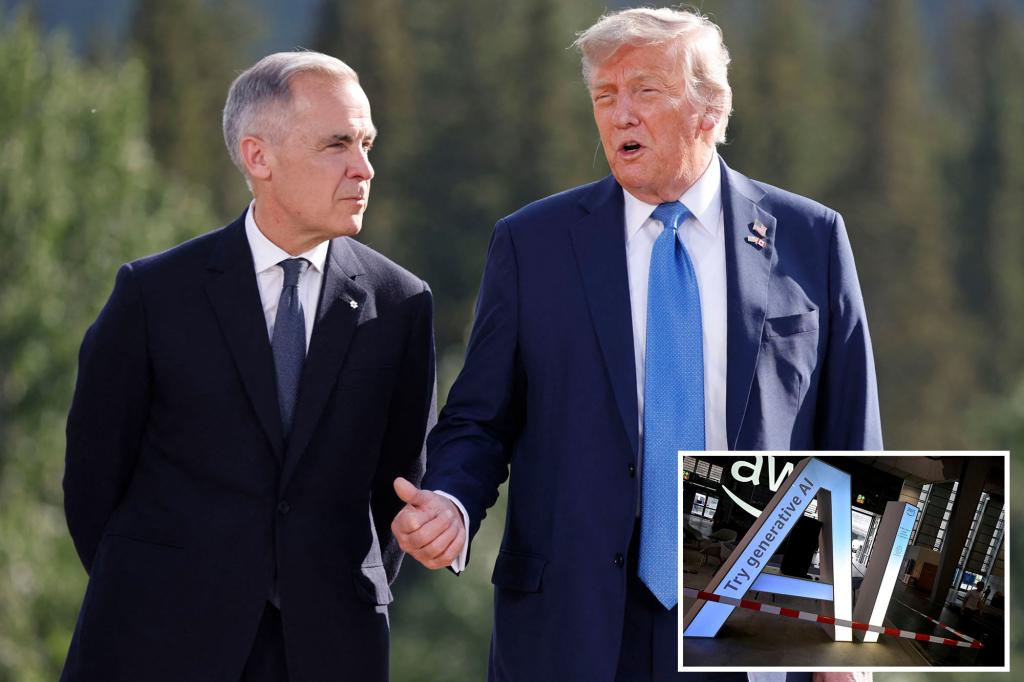Canada has unexpectedly withdrawn its plan to implement a new digital services tax on American technology companies, just days after former President Donald Trump criticized the move as a “foolish” and “direct and blatant attack” on the United States. The decision was announced by Canadian Prime Minister Mark Carney on the eve of the tax’s scheduled implementation, as Canada seeks to revive stalled trade negotiations with the US before a critical July 21 deadline.
The tax, which was set to impose a 3% levy on revenue generated by companies such as Amazon, Google, Meta, Uber, and Airbnb from Canadian users, would have been applied retroactively, potentially leaving these firms with a $2 billion bill due in the United States by the end of the month. Former President Trump had reacted strongly, halting trade talks with Canada and threatening to introduce new tariffs on Canadian goods within the week.
Background and Reactions
The announcement comes as tensions between the US and Canada have been escalating over trade policies. On Friday, Trump expressed his disapproval on Truth Social, stating, “We have just been informed that Canada… has just announced that they are putting a Digital Services Tax on our American Technology Companies, which is a direct and blatant attack on our Country.” He further accused Canada of emulating the European Union, which has been in discussions with the US over similar taxes.
“Based on this egregious Tax, we are hereby terminating ALL discussions on Trade with Canada, effective immediately,” Trump declared.
In response to the backlash, Carney’s office confirmed that he had spoken with Trump on Sunday night, leading to the decision to halt the tax. Finance Minister François-Philippe Champagne is now working on legislation to rescind the tax, as stated by Canada’s finance ministry.
Implications for US-Canada Relations
The digital services tax was initially announced in 2020 as a measure to ensure that large technology companies operating in Canada contribute taxes on revenues generated from Canadian users. However, the abrupt cancellation of the tax highlights the fragility of US-Canada trade relations, especially in the context of ongoing negotiations for a new economic agreement.
According to a statement from Canada’s finance ministry, “Canada’s preference has always been a multilateral agreement related to digital services taxation.” The breakdown in talks followed a meeting between Trump and Carney at the G7 summit in mid-June, where they had agreed to finalize a new economic deal within 30 days.
Expert Opinions and Future Prospects
Trade experts suggest that the decision to withdraw the tax reflects Canada’s strategic prioritization of its economic relationship with the US. “The US is Canada’s largest trading partner, and any disruption in this relationship could have significant economic repercussions,” noted trade analyst Sarah Johnson.
Meanwhile, Canadian businesses have expressed relief at the decision, urging consumers to support local companies. “Economically we have such power over Canada. We’d rather not use it,” Trump remarked, emphasizing the economic leverage the US holds over its northern neighbor.
“It’s not going to work out well for Canada. They were foolish to do it,” Trump commented from the Oval Office.
Looking Ahead
As Canada moves to rescind the digital services tax, the focus now shifts to the resumption of trade negotiations later this month. Both nations are expected to work towards a mutually beneficial agreement that addresses the concerns of both parties.
With the July 21 deadline looming, the coming weeks will be crucial for US-Canada trade relations. The outcome of these negotiations will likely set the tone for future economic interactions between the two countries.
For now, Canadian officials remain optimistic about reaching a resolution that will strengthen bilateral ties and foster economic growth. As the situation develops, stakeholders on both sides of the border will be closely monitoring the progress of these critical discussions.
